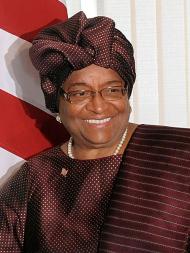Sir Ralph Norman Angell (26 December 1872 – 7 October 1967) was an English lecturer, journalist, author, and Member of Parliament for the Labour Party.
Angell was one of the principal founders of the Union of Democratic Control. He served on the Council of the Royal Institute of International Affairs, was an executive for the World Committee against War and Fascism, a member of the executive committee of the League of Nations Union, and the president of the Abyssinia Association. He was knighted in 1931 and awarded the Nobel Peace Prize in 1933.
Biography
Angell was one of six children, born to Thomas Angell Lane and Mary (Brittain) Lane in Holbeach, Lincolnshire, England. He was born as Ralph Norman Angell Lane, but later dropped the "Lane".
He attended several schools in England,the Lycée de St. Omer in France, and the University of Geneva, while editing an English newspaper, published in Geneva.
Angell had, while in Geneva, felt that Europe was "hopelessly entangled in insoluble problems". While still only a young man of 17, he took the bold decision to emigrate to the West Coast of the United States, where he was for several years to work as a vine planter, an irrigation-ditch digger, a cowboy, a California homesteader (after filing for American citizenship), a mail-carrier for his neighbourhood, a prospector, and then, closer to his natural skills, as reporter for the St. Louis Globe-Democrat and later the San Francisco Chronicle.
Due to family matters he returned to England briefly in 1898, then moved to Paris to work as sub-editor of the English language Daily Messenger, and then as a staff contributor to the newspaper Éclair. He also through this period acted as French correspondent for some American newspapers, to which he sent dispatches on the progress of the Dreyfus case. From 1905 to 1912, he became the Paris editor for the Daily Mail.
Back in England again, he joined the Labour Party in 1920 and was MP for Bradford North from 1929 to 1931. In 1931 he was knighted for his public service, and later in 1933 he was presented with the Nobel Peace Prize. From the mid-1930s, Angell actively campaigned for collective international opposition to the aggressive policies of Germany, Italy, and Japan. He went to the United States in 1940 to lecture in favour of American support for Britain in World War II, and remained there until after the publication of his autobiography in 1951. He later returned to Britain and died at the age of 94 in Croydon, Surrey.
The Great Illusion
Angell is most widely remembered for his 1909 pamphlet, Europe's Optical Illusion, which was published the following year (and many years thereafter) as the book, The Great Illusion. (The anti-war film La Grande Illusion took its title from his pamphlet.) The thesis of the book was that the integration of the economies of European countries had grown to such a degree that war between them would be entirely futile, making militarism obsolete. This quotation from the "Synopsis" to the popular 1913 edition summarizes his basic argument.
The Money Game
Angell was also the designer of something called The Money Game, a visual method of teaching schoolchildren the fundamentals of finance and banking. First published in 1928 by J. M. Dent & Sons, The Money Game, How to Play It: A New Instrument of Economic Education was both a book and a game. The bulk of the book was an essay on money and a discussion of economic theory, it also contained a summary of the game's story and an explanation of the rules.

